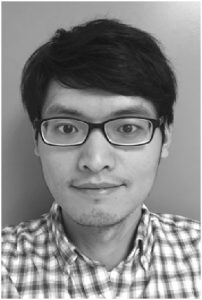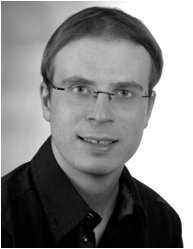We are pleased to announce the three finalists of the Early Career Researcher (ECR) Manuscript Competition. The winner of the competition will be determined during the ECR Manuscript Competition session at HUPO 2016 in Taipei. The session takes place on September 21, from 09:30-10:15, in Room 102.

Cheng-Kang Chiang
Cheng-Kang Chiang is currently pursuing his postdoctoral training under Dr. Figeys supervision at University of Ottawa, Ottawa Institute of Systems Biology (OISB), Canada. He obtained his PhD from the Department of Chemistry, National Taiwan University with Dr. Huan-Tsung Chang. His current research interests include using quantitative mass spectrometric methodology to characterize and understand the cellular mechanisms of the circadian clock underlying environmental factors in metabolic processes, as well as deciphering key regulators between gut microbiota and host proteome at the mucosa-luminal interface of new-onset pediatric IBD patients.

Stefan J. Kempf
The aim of this study was to elucidate the effect of chronic low-dose-rate radiation exposure (1 mGy/day or 20 mGy/day – corresponding to doses of daily computed tomography (CT) scans) given over 300 days on the murine Apoe-/- hippocampus. Marked alteration in the phosphoproteome was found at both dose rates whereas changes in the unmodified and sialylated N-linked glycoproteins were scarce. The phosphoproteins were associated with control of synaptic plasticity, calcium-dependent signalling and brain metabolism. A reduced memory-related CREB signalling was found at both dose rates whereas synaptic morphology-related Rac1-Cofilin signalling was altered only at the lower dose rate. Adult neurogenesis, investigated by Ki67, GFAP and NeuN staining, and cell death (activated caspase-3) were not influenced at any dose or dose rate. This study shows that several molecular targets induced by chronic low-dose-rate radiation overlap with those of Alzheimer´s pathology that may suggest it as a contributing risk factor to this neurodegenerative disease.

Hannes Röst
I am a bioinformatics researcher interested in high-throughput technologies that allow us to study the molecular phenotype of a biological system comprehensively. I have worked on theoretical questions in targeted proteomics, contributed to the development of SWATH-MS and wrote the first software capable of targeted analysis of SWATH-MS data in high throughput. I studied at ETH Zurich, Switzerland, worked with Ruedi Aebersold during my PhD and I am now working with Mike Snyder at Stanford University to apply mass spectrometry in a personalized medicine context.


.png)